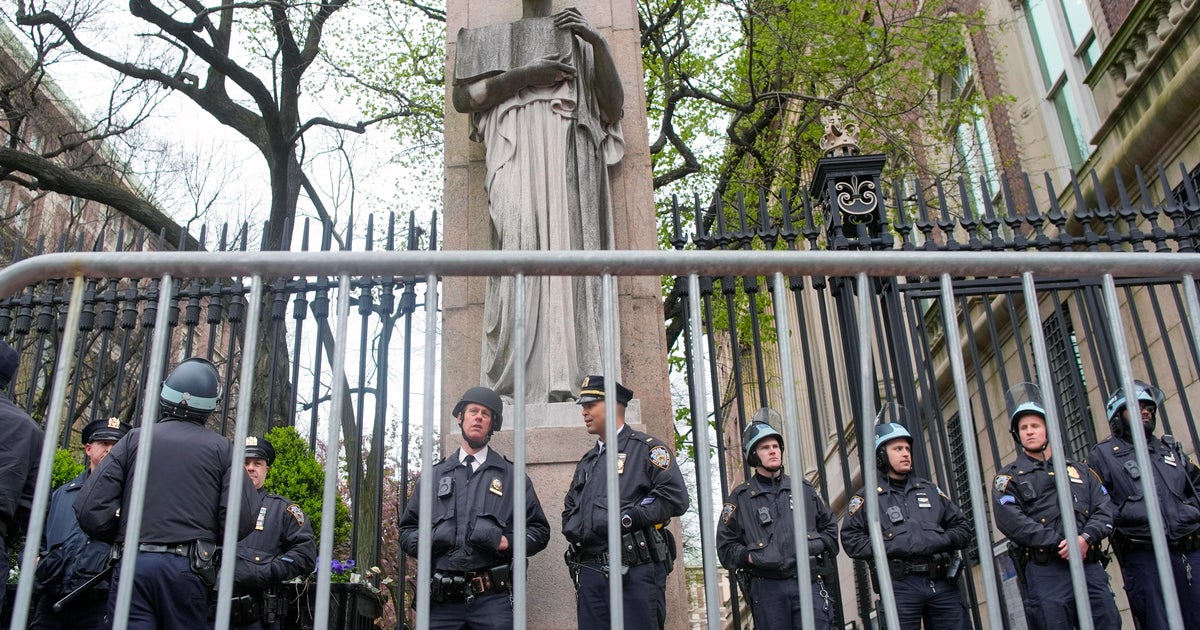Supreme Court To Take Up New Yorker's Historic DOMA Case
NEW YORK (CBSNewYork/AP) -- While the Supreme Court takes on California's same-sex marriage ban, one New Yorker's historic case will also be heard.
On Wednesday, the Supreme Court will take up the federal Defense of Marriage Act, the 1996 federal law that defines marriage as between one man and one woman.
The law prevents same-sex couples who are legally married from receiving a range of federal tax, pension and other benefits that otherwise are available to heterosexual married couples.
The plaintiff in the case is 83-year-old Edith Windsor, who lived with her partner Thea Spyer in New York City for more than four decades.
Supreme Court To Take Up NYer's Historic DOMA Case
She sued the federal government after she was forced to pay $363,053 in estate taxes when Spyer died in 2009 because DOMA didn't recognize their marriage, even though the state of New York did. The two were in married in Canada in 2007.
In October, a federal appeals court in Manhattan upheld a lower court judge who ruled that DOMA was unconstitutional, saying it violates equal protection.
In 2011, New York became the sixth state to legalize gay marriage. Today, same-sex marriage is legal in nine states and the District of Columbia.
New York Attorney General Eric Schneiderman, who led a coalition of more than a dozen states in filing a friend-of-the-court brief in the case of United States v. Windsor, called on the Supreme Court to "strike down" DOMA and California's same-sex marriage ban.
"The State of New York has long recognized out-of-state same-sex marriages, and the enactment of the Marriage Equality Act further cemented our state's position on this critical civil rights issue," he said in a statement.
There are several possible outcomes for the DOMA case.
If the court upholds Section 3 of DOMA which defines marriage for purposes of federal law as the union of a man and a woman, it would not affect state laws regarding marriage.
However, it would keep in place federal statutes that prevent legally married gay couples from receiving a range of benefits
that are otherwise available to married people.
If it strikes down DOMA, it would allow legally married gay couples or a surviving spouse in a same-sex marriage, to receive benefits and tax breaks resulting from more than 1,000 federal statutes in which marital status is relevant.
In Windsor's case, she would receive a refund of $363,000 in estate taxes.
If the Supreme Court finds that it does not have the authority to hear the case, Windsor probably would still get her refund because she won in the lower courts, but there would be no definitive decision about the law from the nation's highest court and it would remain on the books.
As Windsor waits for a decision in the case, she is also getting ready to be one of three grand marshals for the 44th annual NYC LGBT Pride March.
Windsor, along with Harry Belafonte and Earl Fowlkes, were named as this year's grand marshals on Monday.
"Everyone has really taken her on as kind of the matriarch of this movement for this year," Managing Director Chris Frederick told WCBS 880's Alex Silverman. "We're expecting that (Supreme Court) decision to come actually during the week of pride this year so we thought it was very relevant and very fitting that she be one of the grand marshals."
Windor, Belafonte and Fowlkes will lead the parade on June 30. It runs from Midtown along Fifth to the West Village along Christopher Street.
(TM and © Copyright 2013 CBS Radio Inc. and its relevant subsidiaries. CBS RADIO and EYE Logo TM and Copyright 2013 CBS Broadcasting Inc. Used under license. All Rights Reserved. This material may not be published, broadcast, rewritten, or redistributed. The Associated Press contributed to this report.)



